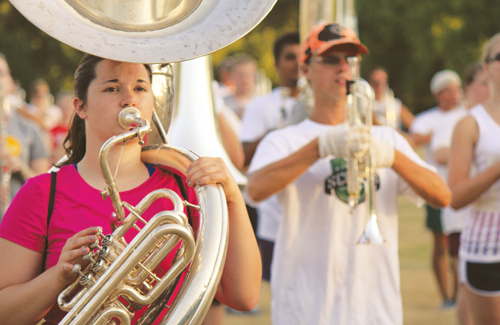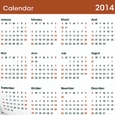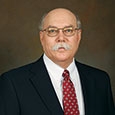
Creating the event schedule is one of a band director’s most important tasks. Granted, it is not difficult just to generate and distribute a list of performances, but to develop a schedule that avoids conflicts with other important events in the school and community can be a big challenge. It is worth the effort.
Over the years I have heard colleagues who have children in area bands voice complaints when band events conflict with other activities. Nobody is happy when the high school band has a marching competition on the same day as the big college game, or when the middle school band has its spring trip scheduled for the same weekend as the annual dance recital, or when the band’s winter concert is scheduled on the same night as the local Christmas Parade. Likewise, no parents want their children to have to choose between sports and band in high school. Conflicts are sometimes unavoidable, but with a careful strategy by the band director, many problems can be eliminated. An effort to reduce these conflicts usually will result in greater student participation and more community support for the program.
The Right Priorities
I have known directors who created their band schedules with almost no regard to potential conflicts with school or community activities. These directors simply distributed the schedule to their band members and told them that if there is a conflict, the students and their parents should remember that a major part of the band grade is based on attendance. Students with two commitments scheduled for the same day then would either have to choose band or receive a lower grade. In my observation, band programs that are run in this manner usually have one thing in common: high dropout rates. When students and parents are repeatedly put in a position that forces them to choose between band and other activities that they value, they ultimately will make a choice – and it will not always be for band.
When I was a first-year high school band director, I inherited a band of approximately 50 members at a rural high school of 450 students. The band program had been run in a way that required students to be all-in for band or they were out of the program. At first this approach was appealing to me. I was committed to an ideal of building a band program filled with students who had the same passion for music that I had, students who would put band first above everything else, much like I had done during my high school years.
As I worked with the band it quickly became evident that there was indeed a core group of students who had the qualities I wanted in my ideal band members. These students were excellent musicians whose only activity beyond academics was band. I also discovered a critical problem with this group – it only numbered about a dozen students. I soon realized that my expectations were off the mark. When I was trying to find only those students who would be completely committed to band, I was willing to exclude those who were not. After making a quick adjustment to my expectations, I realized that to build a good program, I needed to make an effort to recruit and retain students who had interests beyond band. The strategies I developed then helped me to expand the high school band from 50 to nearly 150 members. One of the most important of these strategies was to schedule our rehearsals and performances in a way that would avoid conflicts with other school activities.
Community Events
Early in my career I also learned how important it is to consider community events when creating the band’s calendar. One year our band received an invitation to attend a prestigious marching competition in a neighboring state over three hours away. We had performed well in local competitions the previous year but had never performed at an out-of-state contest. I thought this would be an exciting opportunity for the students to travel and compete with bands we had never seen before.
The competition happened to fall on a Saturday during a four-day annual festival held in our county. This festival hosted small parades each evening and culminated in a large Saturday night parade of bands featuring all of the county bands as well as bands from neighboring communities. This Saturday parade always drew the biggest crowd, including a large number of students from each high school. Because our band had never missed the Saturday parade, I thought that it would not be a problem if we skipped it just once to attend the marching competition. When I distributed the band schedule at the beginning of the school year, a few students approached me to ask if the date of the contest was correct. They noticed the conflict immediately, even though the Saturday night parade was still over two months away.
As the weeks went by, more and more students as well as parents asked if the band was really going to attend the contest rather than perform at the parade. I repeatedly explained to everyone that attending the competition would be an enjoyable experience, and more importantly, it would benefit the reputation of our band program. My views on the matter did not change until a couple weeks before the festival when the district superintendent visited the band room one day after school. It was not unusual for him to stop by, since the district office was adjacent to the high school and he was a great supporter of the band, but I sensed that something in particular was on his mind. After we had our usual conversation about how the band students were doing, he told me that he and the high school principal had received several phone calls about my plan for the band to attend the competition rather than appear in the Saturday night parade at the festival. He assured me that he had responded to every inquiry by stating that he trusted my decision and that he believed I had the best interests of the band program in mind. But he also said that he had one question for me about my claim that the competition would benefit the band’s reputation: “In whose estimation will the band’s reputation increase – members of our community, or the organizers and community hosting the contest?” It was at that moment that I realized that my thinking about the matter had been misguided. The reputation of the band program within our community should be the top priority. I had lost sight of that.
The next day at rehearsal I informed the band that we would not attend the competition and would instead perform in the parade. I expected to see a room full of disappointed faces, as our students had always been excited about attending competitions. To my surprise, however, the announcement was met with smiles. The reason for these smiles was obvious. Our community’s traditions and the opportunity to perform in front of their family and friends were far more important to students than the prospect of performing at a contest in another state.
From that point on I approached the task of creating the band’s performance schedule from a different perspective. I had never really considered what was going on in the community, nor had I ever looked at the schedule from a parent’s perspective. Once I began to view the band’s calendar as part of the community’s calendar, student conflicts decreased, and band member retention and audience attendance at our events increased. Best of all, people began to see the band as a key part of community life, and they started supporting band activities much in the same way they had traditionally supported school sports teams.
Techniques for Avoiding Conflicts
A conflict-free band schedule is a difficult goal to reach, but there are several planning techniques that can help minimize conflicts. First, begin building the event calendar early. It is usually possible to begin creating the following year’s performance schedule in late January, starting with school-related dates that are usually not subject to change. These fixed dates include the beginning and end of the school year, teacher work days, holidays, school exam schedules, state-mandated testing dates, and graduation. Usually the principal, a guidance counselor, or an employee at the district office can provide this information. For many years my source for these dates was a secretary in the district office who was also a band parent. I think there were some years when I knew the upcoming school-year calendar before anyone else at my high school, even the principal.
Next I would consider state music education events such as regional and state marching and concert competitions, solo and ensemble competitions, and conferences. In most states the scheduling of these events from year to year is fairly predictable. Although the official dates may not be published until summer, usually there is a draft of the next year’s calendar in the works. I found that it helps to make a phone call to someone who serves on a state committee. Not only does this provide advance knowledge of these dates, but there is also sometimes the opportunity to offer input on date selection.
Another key calendar consideration is to note the dates of all football games, including playoffs, as well as the team schedules of any sports that your band members play. Also, if the band has students who participate in choir or orchestra, as is often the case, those dates should be considered as well. Because I usually had several students who were in the ensembles of my choir and orchestra colleagues, I found that it helped for all of us to build our schedules together by sharing the same master calendar at an early stage. It is also helpful to communicate with the middle school ensemble directors about scheduling; consider adding their performance dates to your calendar, especially if you happen to share the same performance venue.
The next consideration in building the calendar is community activities. Adjusting your calendar around these activities can be difficult, especially in a large community, because it often seems that there is something going on every day. A good starting point is to visit websites or to make phone calls to event organizers to confirm important dates. Also, if there is a college or university nearby, it is probably a good idea to consider key events scheduled at that school, such as football rivalry games, graduation, and concerts.
Once all of these activities are on the calendar, it is possible to begin setting dates for the key band events of the year, such as school concerts, marching competitions, spring band trips, and fundraising events. Whenever possible, try to be consistent in choosing dates from year to year. For fundraising activities, encourage the principal to add these dates to the school master calendar in order to avoid any conflicts with another group’s fund-raising event.
Over the years I found that it also helps to gather information about the other activities that fill up the schedules of my students. At least once a year, usually in December, I asked band members to complete an activities profile, listing any activity that they participated in during the previous year, as well as future activities. These profiles included activities such as jobs, school and recreational sports teams, dance lessons, church youth groups, summer camps, and membership in school and community clubs and organizations. Although time-consuming to review, these profiles allowed me to anticipate where conflicts might arise. With this information in hand, conflicts with events such as dance recitals and church mission trips soon became non-existent.
Toward the end of the school year, it should be possible to put together a near-complete schedule. By that time it will be easy to identify the dates of any rehearsals or performances that may conflict with other activities. Then you can make the decision to change the schedule or to leave the conflict in place, with good knowledge of how many students may be affected by the conflict. Once the calendar is finalized, do your best to share it with the band and your community. Publish it on the band’s website, and distribute it to students and parents in both hard copy and electronic formats. If there is a local newspaper, consider writing an official press release that announces the schedule, identifies performances of special interest, and directs readers to the band’s website for the full schedule. It is also a good idea to distribute the schedule to school administrators, coaches, guidance counselors, transportation supervisors, bus drivers, and custodians. I also recommend distributing the schedule to the middle school ensemble directors, as well as to all middle school band members and their parents. Often middle school parents would tell me how helpful it was to receive the high school band calendar before their children started high school, so that they could begin adjusting family vacation dates to avoid conflicts with band events.
Scheduling and Community Support
Distribution of the band performance schedule can also be valuable in generating greater community support for the band program. I routinely hand-delivered schedules to community event organizers, local music dealers, dance studios, recreation departments, churches, and any other people who might schedule events that could potentially conflict with band activities. This personal interaction was a great way to build rapport with important members of the community, and it helped to cultivate a sense of cooperation and respect for each other’s endeavors. This interaction also gave me an opportunity to explain why some band events had to be held on certain days. I also asked students to personally distribute the band schedule to their coaches and employers, with dates highlighted for events that they hoped these people would attend.
A further scheduling point to consider with regard to building community support is the number of performances given in the community. For many band programs the event calendar is filled up solely by marching and concert competitions, sometimes to the point that the band rarely performs for the community other than at football games. To these groups I would strongly recommend seeking out additional opportunities for the marching band to perform locally. Consider participating in events such as Christmas parades, Independence Day parades, and Memorial Day services. It may also be a good idea for the jazz ensemble or other small groups to perform at civic organization meetings, church events, or store openings.
Local concert band performances should also be scheduled so that community members can easily attend. In some years I elected to schedule additional concerts in the community, instead of participating in concert competitions. Performing additional concerts in the community allowed me to introduce students to a wider repertoire, and it also provided additional opportunities for members of the community to hear the band. In these years we would still program and perform contest music, but we also played a variety of music designed to appeal to the general public, including patriotic selections and novelty numbers, as well as arrangements of popular music, show tunes, and movie themes. In addition, we would often hold special community appreciation concerts following fundraising events. For these concerts the students would post flyers across town announcing the concert, the music selections, and the names of any special guest conductors. At these special concerts local politicians, the school superintendent, and even the high school football coach all made their conducting debuts.
In the printed programs for these concerts, I would be sure to include a special appreciation page listing any event organizers or business owners who I felt had supported our program, not just financially, but also with regard to scheduling. I always mailed out a program to everyone who was listed, and soon I began to see many of these individuals attending our band events. Not surprisingly, none of our students who worked with these individuals ever had conflicts on the evenings of those concerts.
As educators it is our obligation to provide an environment in which as many students as possible will have the opportunity to experience the joy of music. Additional efforts made in creating the band schedule, developing a personal touch in distributing the schedule, and finding creative ways to connect with the community may not eliminate every conflict. A conflict-free schedule is nearly impossible. But based on my experiences, the right practices will tend to make conflicts become fewer and fewer over time. There will not be as many students who are forced to choose between band and something else, and parent and community support for the band program will also increase. Ultimately the band should be viewed as an important thread in the fabric of the community. That is a reputation of which the director and the band can truly be proud.






